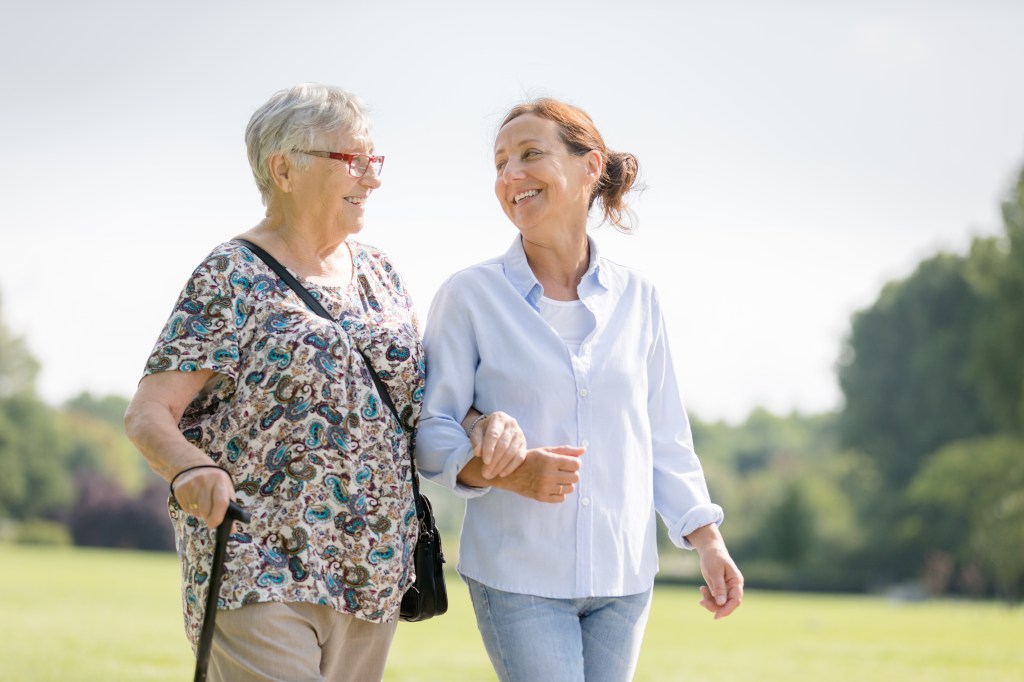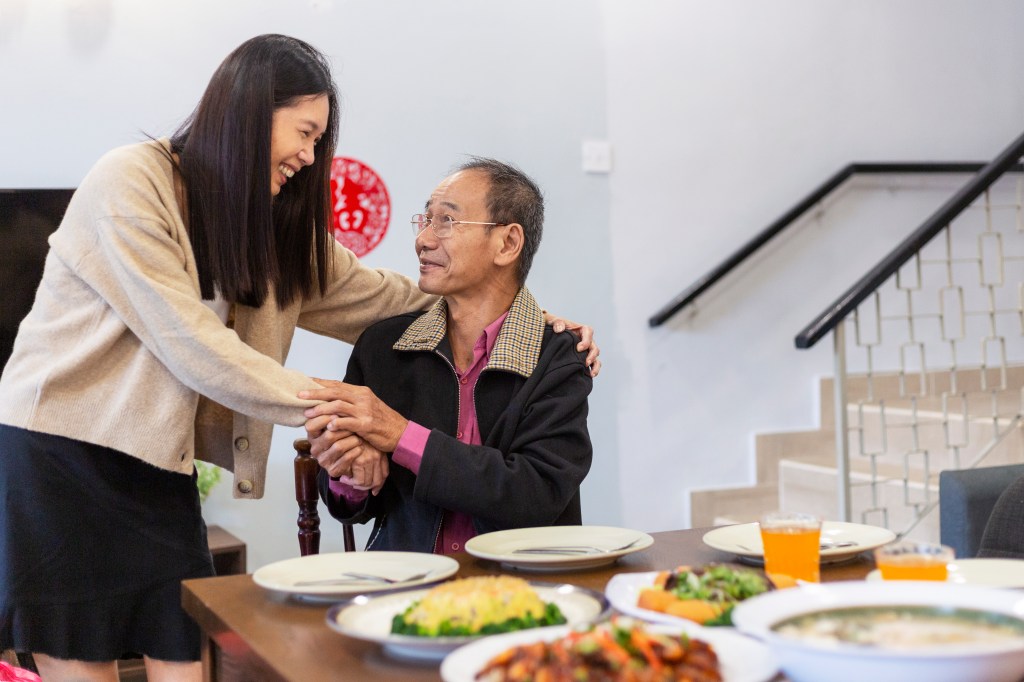
Medicaid Benefits for Caregivers in Massachusetts: What You Need to Know
Being a caregiver for a loved one is a great honor and one of the greatest challenges. Whether you’re slowly stepping into the role or took on the title overnight, caregiving for someone means ensuring their physical, mental, and emotional needs are met. This may be a difficult phase for the person receiving care, experiencing challenges like disease progression, a new diagnosis, or aging through the later stages of life.
Through MassHealth, Massachusetts’ Medicaid offering, caregivers can access additional tools and resources to make their caregiving journey a little easier. While many of the benefits are for Medicaid-qualified individuals and have income or need requirements, it’s important to look at all available benefits across the state to understand what your loved one may qualify for. These programs or waivers can make a world of difference for someone you care about.
Understanding MassHealth and Eligibility for Long-Term Services
Massachusetts has several healthcare coverage programs available. MassHealth Standard and CommonHealth are commonly used by those who are aging or facing a disability. The type of coverage your loved one may qualify for varies based on several factors, including citizenship status, age, income, assets, and medical needs.
- MassHealth Standard is the state’s most comprehensive coverage and includes long-term care, adult day programs, and Medicare cost sharing. Eligibility requirements for MassHealth Standard can be found here.
- MassHealth CommonHealth covers services for adults and children with disabilities who may not otherwise qualify for MassHealth Standard due to income. CommonHealth can help individuals reduce their medical expenses through copay, coinsurance, or medical premium assistance, and supports individuals with select medical service costs. Review the specific eligibility requirements to determine if your loved one may qualify.
Those who are eligible can apply to both programs using the state’s SACA-2 application.
Overview of Home-Based Care in Massachusetts (Without a Waiver)
If your loved one qualifies for MassHealth Standard or CommonHealth coverage, several care assistance programs may become available, including the Personal Care Attendant (PCA) Program, the Adult Foster Care (AFC) Program, and the Group Adult Foster Care (GAFC) Program. These programs are each unique in terms of eligibility and coverage; however, none of them require waivers. They help families by offsetting the cost of care and providing caregiver support options, including caregiver pay, resource sharing, and training.
Adult Foster Care (AFC)
The AFC Program in Massachusetts is available for those who require constant assistance with at least one ADL, such as bathing, dressing, toileting, or eating. Benefits of the AFC Program include transportation support, companionship, bathing, housekeeping, and meal preparation. An adult caregiver who lives with the person they care for, such as a family member or a friend (excluding a spouse or a legal guardian), can receive financial assistance through a contract with MassHealth. A state-contracted provider agency will evaluate the caregiver, ensuring they can provide high-quality care at home. The agency is then responsible for delivering critical education and ongoing training to the caregiver.
Qualification for AFC is based on income thresholds and an asset review of the last 5 years. While AFC is open to individuals 16 and over, there may be additional eligibility requirements for individuals 65+. Caregiver support organizations offer AFC in Massachusetts, including Careforth, so caregivers can access guidance and coaching to deliver high-quality care at home.
Personal Care Attendant (PCA) Program
The state offers a PCA Program, which allows those who need support with activities of daily living (ADLs) to choose their caregiver based on their unique needs. They are responsible for finding, interviewing, training, and scheduling their own in-home PCA. If a friend or non-spousal family member is serving as their caregiver, they can be paid for the critical role they play in the person’s care journey. The state posts a comprehensive list of agencies that can help identify available support. To enroll in the PCA Program, contact one of the agencies linked above or reach out to the MassHealth Customer Service Center at (800) 841-2900.
Group Adult Foster Care (GAFC)
When remaining at home is no longer an option for your loved one, Massachusetts offers the GAFC Program. This service supports individuals 22+ years of age in a MassHealth-contracted living or group home setting, or elderly housing developments. Those who qualify for this program require more substantial care, but this additional support can help them remain where they are rather than moving to a nursing facility. GAFC offers up to 2 hours a day of support for ADLs such as dressing, toileting, mobility support, and hygiene. Recipients are granted a case manager and nurse that will coordinate updates to their care plan based on changing needs. While there is not a waitlist for this program, they must meet the eligibility criteria and may need to wait for space to open in a contracted group housing location.
Standard Plus Frail Elder Waiver: When Is It Used?
For waiver-based services, the Frail Elder Waiver (FEW) may be an option for those who do not qualify for MassHealth Standard based on income or assets alone. FEW is offered as Massachusetts’ Home- and Community-Based Services Waiver to support individuals with a disability aged 60+ or any individual 65+ who requires support to safely remain living at home. The full listing of supportive services can be found here and includes a home health aide, meal delivery, medication delivery, and educational programs.
To vet your loved one’s eligibility for the FEW, you can contact MassOptions at (800) 243-4636 or submit a form online to be assigned a counselor. From there, your local Aging Services Access Point (ASAP) will evaluate your loved one for eligibility based on financial and clinical criteria. MassHealth will do an additional financial review for qualification, which can be requested by calling (800) 841-2900.
How to Apply for MassHealth and Caregiver Support Programs
To understand if your loved one qualifies for any state-offered coverage, use the American Council on Aging’s Medicaid Eligibility test. This resource pre-screens for long-term care support. If this evaluation shows they could qualify for MassHealth Standard or CommonHealth, the next step would be completing the state’s SACA-2 application. The same application is used for both plans. Make sure you have the necessary information on hand before you begin the application.
Massachusetts partners with organizations that help families understand which benefits and programs they may qualify for:
- Aging Services Access Points (ASAPs): You can find your local ASAP office here.
- The Massachusetts Executive Office of Elder Affairs: Specialists are available by calling MassOptions at (800) 243-4636 or contacting them via email at information.resources@mass.gov
Additional Caregiver Resources in Massachusetts
If your loved one doesn’t qualify for Medicaid, you may find yourself worried that they won’t have any options for help; however, the Family Caregiver Support Program is a free service for unpaid caregivers. Through this program, caregivers are matched with a specialist to serve as a valuable resource during their caregiving journey. The program provides critical support and referrals for respite care, education, training, and counseling. The program is available for:
1. unpaid adult (18+) caregivers supporting individuals 60+ or anyone with dementia
2. grandparents or familial adults 55+ caring for an individual with a disability
Evaluate your loved one’s eligibility by calling MassOptions at (800) 243-4636.
Additional caregiver resources:
- A comprehensive list of Massachusetts’ caregiving programs and services
- AARP’s resources for family caregivers which outlines specific nonprofit and state-sponsored services
- Local support group listing for caregivers
Family Caregiver Support in Massachusetts
Massachusetts has several support programs and services available to individuals with disabilities or aging residents across the state. While many are associated with Medicaid eligibility, that isn’t the only way to get support. Through waivers like FEW, or non-waiver programs like PCA or AFC, Massachusetts offers services that help families thrive and get the support they need. Regardless of your loved one’s diagnosis or healthcare needs, take a few minutes to explore your available options. Even simply connecting with other caregivers through support groups can be a great place to improve and sustain your caregiving journey.
Careforth is always available as a resource for you, too. We strive to provide the support and connections that ensure caregivers feel supported throughout their caregiving journey. Visit the How We Help page on our site to learn more about how Careforth supports caregivers or contact us for more information.
Medicaid and Caregiving in Massachusetts FAQs
Do I need a waiver to access caregiving support in Massachusetts?
Not always. Many Massachusetts caregiver support programs are offered through MassHealth Standard and CommonHealth, the state’s Medicaid coverage. Individuals can also receive support through the Family Caregiver Support Program, which does not require participation in any state waivers or qualification via state Medicaid coverage.
What’s the difference between Adult Foster Care (AFC) and Group Adult Foster Care (GAFC)?
The AFC Program offers individuals 16+ with a self-directed care model. This means care recipients can remain in their home with the support of a live-in caregiver that they choose, hire, and train. The GAFC Program is for individuals 22+ years of age residing in a congregate living facility, like an assisted living center or group home.
Can family caregivers get paid through Medicaid in Massachusetts?
Yes, when an individual qualifies for Medicaid, they might be eligible for programs such as the Adult Foster Care (AFC) Program, the Personal Care Attendance (PCA) Program, or the Frail Elder Waiver (FEW). These services allow certain family members or friends to serve as caregivers and be compensated for their work.
More insights like this:
-

Medicaid Rules Every Family Caregiver Should Know
Read more: Medicaid Rules Every Family Caregiver Should KnowCaring for a loved one who relies on Medicaid can feel overwhelming, especially when you’re trying to sort through rules, services, and paperwork while also meeting daily care needs. More than 20% of people enrolled in Medicaid are either over the age of 65 or have a diagnosed disability. Yet this group accounts…
-

What Is A Medicaid Family Caregiver?
Read more: What Is A Medicaid Family Caregiver?When your loved one qualifies for Medicaid, you may not realize that their benefits can go beyond basic medical coverage. Caring for a loved one at home helps Medicaid avoid the higher costs of care facilities, like nursing homes, so many states compensate caregivers for the work they’re already doing to support a…
-

What is the South Dakota Medicaid HOPE Waiver?
Read more: What is the South Dakota Medicaid HOPE Waiver?The Home and Community-Based Options and Person Centered Excellence (HOPE) Waiver is a Medicaid waiver program supporting care for nursing home-eligible individuals in non-nursing home settings with the goal of reducing costs. The program makes it possible for qualifying elderly recipients to remain in community settings, such as their own homes or independent…